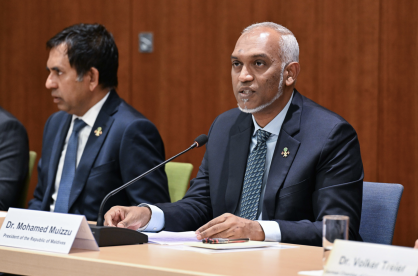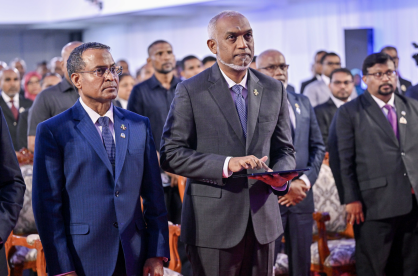The COVID-19 pandemic precipitated a
transformative shift towards digitalization, significantly simplifying various
processes. In the pre-pandemic era, cumbersome paperwork and prolonged queues
characterized many procedures. However, with the advent of digitalization, a
remarkable ease has permeated these processes. One noteworthy instance of this
paradigm shift is evident in the Maldives, where the application procedures for
essential documents like the national Identity card and passport have undergone
digital transformation.
The digitalization of these processes has
undeniably streamlined accessibility, enabling individuals to apply for these
crucial documents from any corner of the country. This has translated into
heightened convenience and efficiency, sparing people the need to endure long
waits and navigate through intricate paperwork. The convenience, however, is
not universal, as a segment of the population, particularly those
technologically challenged, faces difficulties navigating the digital
landscape.
For those less adept with technology, the
complete transition away from traditional paper applications has presented
challenges. The abrupt shift to digital platforms may pose hurdles for some,
creating a digital divide that underscores the importance of considering
varying levels of technological literacy within the population. Striking a
balance between embracing technological advancements and ensuring inclusivity
remains a critical challenge in the ongoing process of digital transformation.
While the online process was brought about due
to requests from many in order to bring ease to these application processes, it
appears that due to some challenges being faced by citizens who are less
adapted to technology, the Ministry of Homeland Security is planning to also
re-introduce the paper-application process, especially for national identity
card and passports.
"We will take some steps very soon.
Manual application is being considered, especially in the case of ID
cards," assured Minister of Homeland Security - Ali Ihsan.
One notable aspect highlighted during the
conference is that these alterations in the application process lack legal
coverage under existing laws. Despite the absence of legal frameworks, the
government appears committed to addressing the challenges faced by citizens.
During the press conference, Immigration Controller Mohamed Shamman addressed
concerns about online payment methods, acknowledging the need for potential
modifications to ensure the ease of public transactions.
In addition to addressing the current
difficulties, Shamman provided insight into the future of passport issuance.
Efforts are underway to expedite the passport-obtaining process, with a
commitment to issuing passports within a remarkable two-day timeframe.
With these challenges being addressed, there
is a possibility that the application process in the future can cater for all,
with the online application still making it easier for people to apply from the
comfort of their own homes while those who prefer paper applications can also
choose that path.






